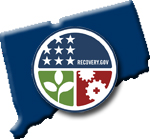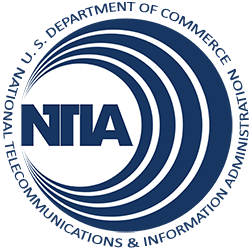Broadband’s ability to expand educational and employment opportunities is especially meaningful for Americans who are deaf or hard of hearing, a community that faces unique challenges in education and that suffers from a rate of unemployment much higher than the national average. Communication Service for the Deaf, Inc. (CSD) intends to expand broadband adoption among people who are deaf and hard of hearing and provide them with online tools to more fully participate in the digital economy. The project proposes to employ a combination of discounted broadband service and specialized computers, technology training from an online state-of-the art support center customized to the community’s needs, public access to videophones at anchor institutions from coast to coast, and a nationwide outreach initiative. Thousands will gain online access to all the Internet has to offer, including sign language interpreters, captioned video services, and other content and functionalities designed especially to advance their educational, employment, and healthcare interests.
Connecticut

Project Components
State Broadband Capacity Building:
The project will create and staff a state broadband technology office responsible for fostering relationships with state and local agencies, and organizing teams of agencies, businesses and other organizations that will work cooperatively to plan and identify funding for programs that accelerate broadband adoption, digital literacy, and computer ownership.
Data Collection, Integration, and Validation:
This project was originally funded for broadband planning activities and two years of data collection. In September of 2010, this project was amended to extend data collection activities for an additional three years and to identify and implement best practices.
The Connecticut Department of Information Technology, in partnership with other state agencies, proposes to significantly upgrade and expand Connecticut’s existing broadband infrastructure in order to improve public safety and educational services across the state.
The Access Connecticut project has three components. First, the project plans to deploy over 5,500 miles of new fiber infrastructure, including 113 hub sites in predominantly underserved areas. Second, it would work with the Connecticut Public Safety Services Data Network to integrate a statewide data network at more than 540 public safety facilities that serve more than 25,000 first responders. Third, the project plans to engage the Connecticut Education Network to bring broadband service to educational institutions and libraries at speeds as up to 1 Gbps.
The 21st Century Information and Support Ecosystem project proposes to implement a comprehensive program of computer training, wireless Internet access, broadband awareness marketing, and online content and applications to residents of 159 affordable and public housing developments and low-income communities in 50 cities and towns across 31 states and the District of Columbia. The project plans to implement four principal programs: training 2,500 youth to become “Digital Connectors” who will then provide digital literacy training to others in their communities; deploying localized broadband networks in public housing developments; developing online content and applications aimed at low-income, low-literacy audiences.
As part of a longstanding project to connect essential community anchor institutions across the country, and facilitate closer collaboration and long-term benefits for education, research, healthcare, public safety, and government services, the University Corporation for Advanced Internet Development (UCAID) proposes a comprehensive 50-state network benefitting approximately 121,000 community anchors. The project proposes a large-scale, public-private partnership to interconnect more than 30 existing research and education networks, creating a dedicated 100-200 Gbps nationwide fiber backbone with 3.2 terabits per second (TBps) total capacity that would enable advanced networking features such as IPv6 and video multicasting. The project plans to connect community anchors across all disciplines into virtual communities with shared goals and objectives, including colleges, universities, libraries, major veterans and other health care facilities, and public safety entities, with additional benefits to tribes, vulnerable populations, and government entities.
